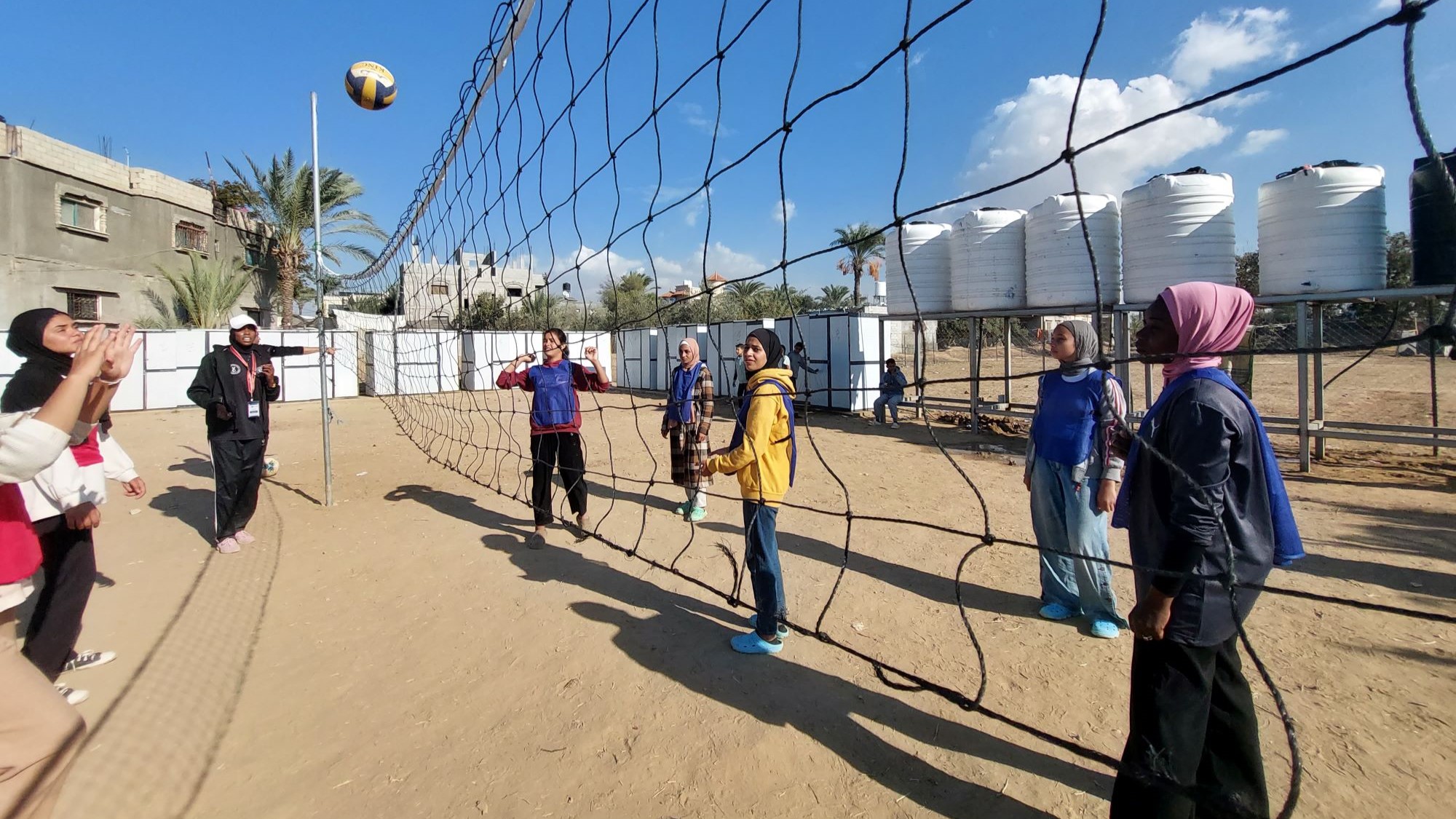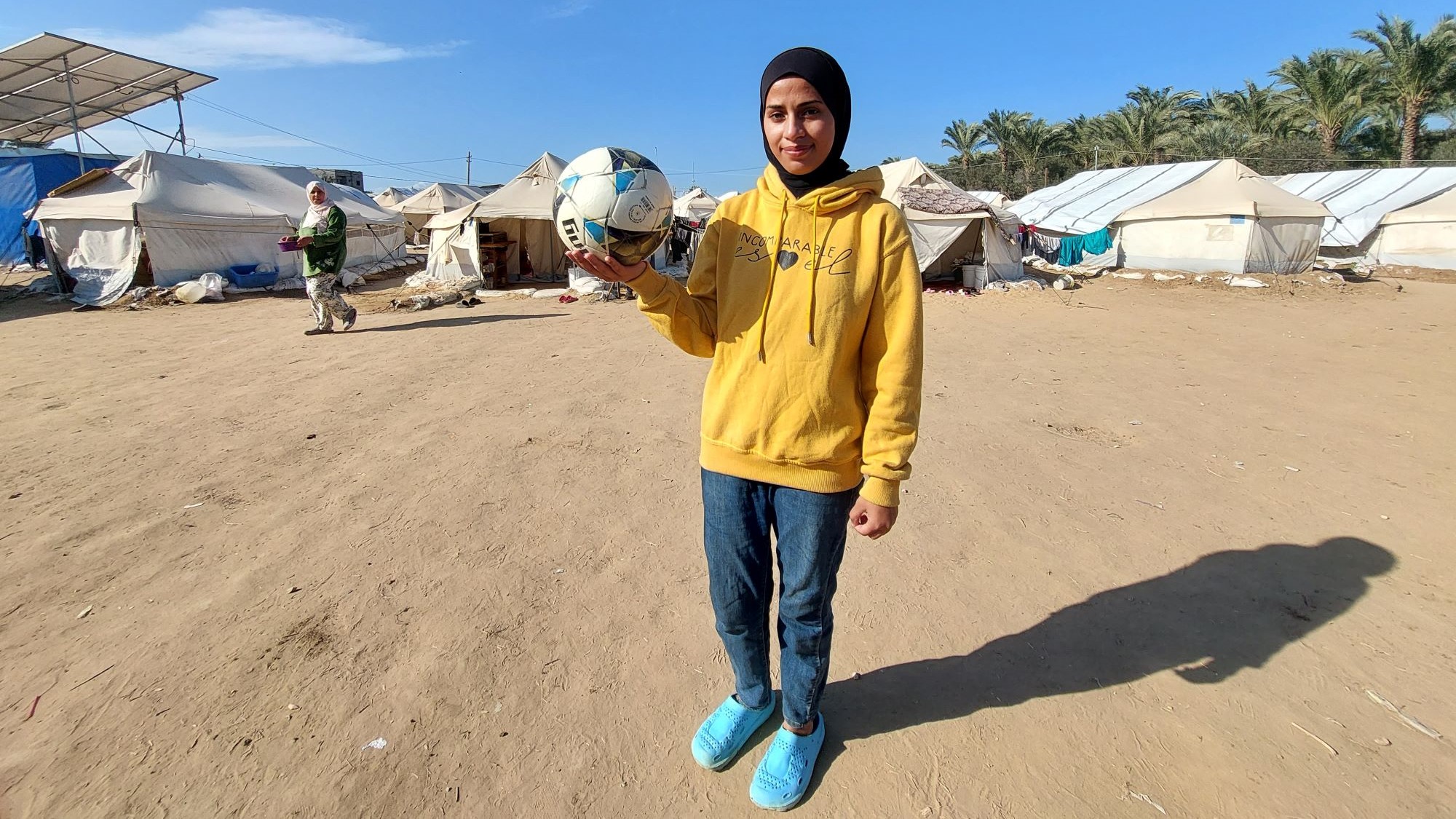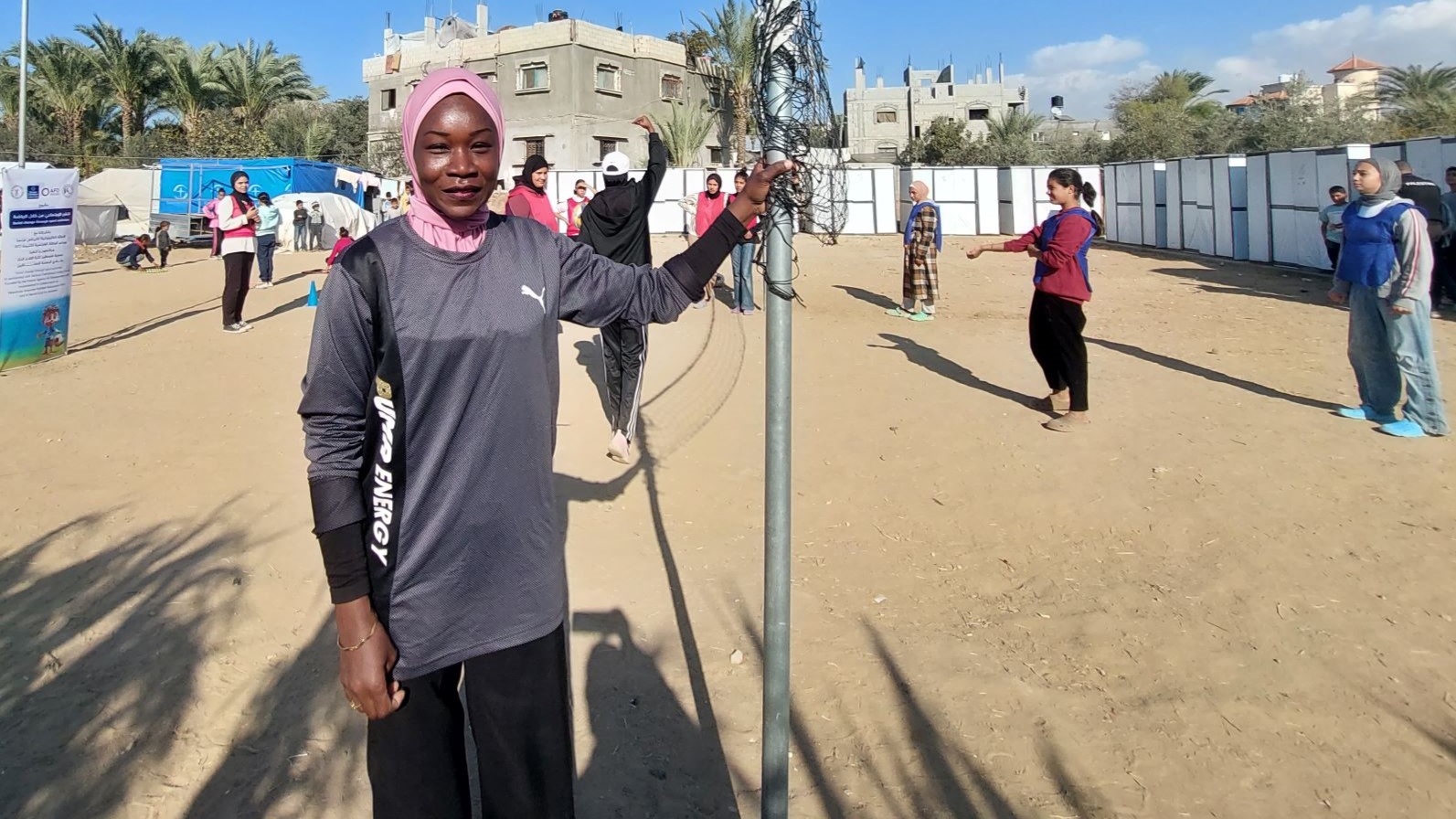Playing without fear

Laughter and the sharp smack of volleyballs against palms echo through Ghusn Al Zaytoon Camp in Deir al-Balah, central Gaza. In a place full of tragic stories, these sounds seem to momentarily suspend reality. A group of women, wearing simple clothes, play with a worn volleyball. In the centre of the court, a makeshift net of rope and loose threads divides the dirt court in half.
The women split into two teams of five, and the referee blows her whistle to start the game. The atmosphere is charged with excitement, fueled by the enthusiastic support of the camp's displaced residents. For both players and onlookers, the game has become a source of energy, offering a momentary sense of peace.
"For the first time in months, we can play and feel joy, free from fear or the sounds of planes and bombings. These moments let us forget, even for a moment, the fear and pain we've lived through," says Nagham Saidam, 24 years old, as she prepares to send the volleyball hurtling toward her opponents.
"I used to work as a public relations officer before the war, but I lost my job, and with it, my passion for everything else," she says. Saidam and her family were displaced from their home in Nasr, northern Gaza, when the war broke out, eventually settling in Ghusn Al Zaytoon.

"We had a small court in our yard where my siblings and I used to practice our passion for volleyball, but now everything has been reduced to rubble." The images of explosions and the sound of planes are still etched in Saidam's mind, but for now, her complete focus is on the sound of the coach's whistle.
Since the ceasefire came into effect on 19 January, hundreds of thousands of Palestinians displaced from the northern Gaza Strip have returned to the homes they fled due to Israeli bombardment. But for now, Saidam has chosen to stay in the camp. "Where will I return to?” she wonders. "There’s no home, no street, no neighbourhood—even my workplace is destroyed."
"I'm still living in a tent even though the fighting has stopped. Everyone is waiting for the next steps and the reconstruction plan. Now we’re facing a difficult phase—we need to recover and strive for a better future."
The destruction of Gaza's sports infrastructure
Hala Shabat, 20, another member of the team, was displaced from her hometown of Beit Hanoun in northern Gaza to Deir al-Balah due to the war—just as she was about to enroll in university. She dreams of studying physical education and one day representing Palestine in international volleyball tournaments. "Every time I hit the ball high, I feel like my dream is soaring with it," she says.
Her father always supported her passion for sports, even setting up a small court next to their tent. She joined the team when it was formed last November. "We decided not to give up despite the circumstances," she says. "We will stay strong until sports fields in Gaza are rebuilt."
The Palestinian Olympic Committee has documented the destruction of 287 sports facilities, including the headquarters of both the Olympic Committee and Palestine’s Football Federation in the Strip, along with dozens of stadiums, halls and club headquarters. Now the fighting has stopped, Shabat hopes that rebuilding facilities will be a top priority in the reconstruction efforts.
The team is led by Hanan Abu Ma'ilik, 36 years old, a volleyball player and coach at the Al-Salam Sports Club for people with disabilities in Gaza City. She has been working to recruit women for the team from the camp since the start of the war. "I feel overwhelming happiness when I see the women laughing and practising their hobby," she says. "Sport helps them forget their suffering, even if just for a few hours."

She continues, "At first, we faced criticism, and the girls were hesitant. But one by one, they joined, encouraged each other, and overcame every obstacle in their way." Even before the war, women in Gaza faced challenges playing volleyball, as the sport is often seen as male-dominated.
Moreover, the blockade imposed on Gaza after Hamas took control in 2007 severely limited extracurricular sports activities, depriving many women and girls of the chance to participate. Opportunities were confined to certain sports at some UNRWA schools and Gazan universities, such as karate, table tennis, volleyball and swimming.
Sport as soft resistance
According to Fuad Abu Ghlayoun, president of the Palestine Football and Prosthetics Association—a civil society organization dedicated to sports in Gaza and the driving force behind the amateur volleyball team—there has been a noticeable improvement in the morale of the players, all of whom have endured immense psychological pressures.
Abu Ghlayoun describes the women's participation in sports as a form of soft resistance, a way to push through the hardships of war. Even playing on an uneven dirt court, which puts them at risk of injury, they continue to play and persevere.
In the wake of the ceasefire, Abu Ghlayoun is working on plans to help organisations set up sports camps across Gaza, complete with proper volleyball, basketball and football courts. These camps aim to support women who have lost limbs during the war, allowing them to ease their pain and regain a sense of normalcy.
However, Abu Ghlayoun stresses, "All of this depends on a genuine end to the war and reconstruction of the devastated Gaza Strip."
This text is an edited translation of the Arabic original. Translated from Arabic by Amany Alsiefy.
© Qantara.de
